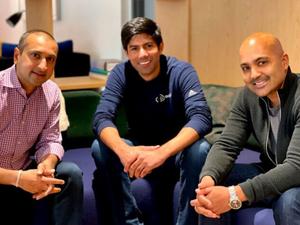
While startup headlines have centered around layoffs in 2022, not everyone has felt the sting so sharply.
Some, like Coro, a cybersecurity platform that will be expanding its Chicago offices by the end of the year, have been able to grow in the face of a down economy.
After a record-shattering year for U.S. startups, tech firms and startups across the world have laid off more than 71,000 workers this year, according to Layoffs.fyi, a site that tracks public reports of startup layoffs. Other sources show that U.S. tech firms in particular have fired some 37,000 workers in 2022.
Meanwhile, in the second quarter, Series A and B round funding was down 22% from the year-earlier period, marking the the biggest quarterly year-over-year decline in early-stage funding since at least 2010, with the exception of the second quarter of 2020, reported The Wall Street Journal, citing PitchBook data.
Coro, on the other hand, has seen 300% year-over-year growth and 125% quarter-over-quarter in 2022 and raised $60 million in Series C funding in April, led by Balderton Capital.
What makes Coro 'a unique outlier'
Jim Tarantino, Coro's chief revenue officer and head of Coro Chicago, has seen the funding slowdown in the tech space firsthand with less money being invested on a quarterly basis, and said finding its own niche within the cybersecurity sector is one of the reasons the Tel Aviv-based company has achieved continued growth.
“We’ve been a unique outlier,” he said. “We've been lucky to be able to stay outside the mix on that to where we've still been able to procure funding, and are still optimistic that we can continue to do so on favorable terms to us.”
Coro is one of the only major global software companies that’s exclusively devoted to the mid-market, according to Tarantino.
“The product itself, being that it's designed for the mid-market and for medium-sized businesses, is really huge. In a recession, a lot of the big Fortune 500 companies are going to stick with what they have, they're going to keep things status quo, and they're not going to go out and spend seven figures [or] millions of dollars on new software when they already have something that's probably working pretty well,” he said.
He’s “optimistic” that Coro will be able to obtain more funding in 2022 before the doors are "completely shut" from a funding standpoint as he expects tech funding to continue to decrease and for investors to get more skittish as concern over a potential global recession grows.
Expanding in Chicago
Expansion plans for the company include an aggressive hiring strategy for the Coro team globally with an emphasis on its Chicago operations — adding 40 new employees in Chicago last year and aiming to hire another 100 by year’s end.
With Chicago as Coro’s world sales headquarters, the company has hired approximately 75 people to work in its Chicago office with plans to expand to a bigger space.
“When we first opened shop here in Chicago last June, we took over an office space on Adams Street that could hold about 30 people," Tarantino explained.
After outgrowing that space, the company moved to its office at 550 W. Van Buren.
“We’ve now outgrown this space as well, and what’s going to happen is they are custom building the entire 13th floor of this building for Coro," Tarantino said. "It should give us plenty of room to grow over the next couple of years because its being built to house as many as 150 to 200 Coro employees."







